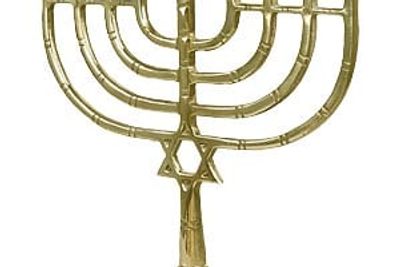Hanukkah
Hanukkah, also known as the Festival of Lights, is an eight-day Jewish holiday commemorating the rededication of the Holy Temple in Jerusalem at the time of the Maccabean Revolt of the 2nd Century BC. Hanukkah is observed for eight nights, starting on the 25th day of Kislev on the Jewish calendar, which may occur at any time from late November to late December in the Gregorian calendar.
More than twenty-one centuries ago, the Holy Land was ruled by the Seleucids (Syrian-Greeks), who sought to force their culture upon the people of Israel. Against all odds, a small band of faithful Jews defeated one of the mightiest armies on earth, drove the Greeks from the land, reclaimed the Holy Temple in Jerusalem and rededicated it to the service of G-d.
At the heart of the festival is the nightly menorah lighting: a single flame on the first night, two on the second evening, and so on till the eighth night of Chanukah, when all eight lights are kindled. An extra light called a shamash is also lit each night for the purpose of lighting the others, and is given a distinct location, usually above or below the rest.
Kwanzaa
Kwanzaa is a weeklong celebration held in the United States honoring universal African heritage and culture, marked by participants lighting a kinara (candle holder). The holiday is observed from December 26 to January 1 each year.
Kwanzaa consists of seven days of celebration, featuring activities such as candle-lighting and libations, and culminating in a feast and gift giving. It was created by Ron Karenga and was first celebrated from December 26, 1966 to January 1, 1967. His goal was to provide an "alternative to the existing holiday and give Blacks an opportunity to celebrate themselves and history, rather than simply imitate the practice of the dominant society."
Boxing Day
Boxing Day is December 26, the day after Christmas, and is celebrated in Great Britain and in most areas settled by the English (the U.S. is the major exception), including Canada, Australia, and New Zealand. While the exact origins of the holiday are obscure, it is likely that Boxing Day began in England during the Middle Ages
Some historians say the holiday developed because servants were required to work on Christmas Day, but took the following day off. As servants prepared to leave to visit their families, their employers would present them with gift boxes.
Another theory is that the boxes placed in churches where parishioners deposited coins for the poor were opened and the contents distributed on December 26, which is also the Feast of Saint Stephen. As time went by, Boxing Day gift giving expanded to include those who had rendered a service during the previous year.
Christmas
Christmas Day, originally Feast of the Nativity, is a holiday observed on December 25 to commemorate the birth of Jesus, the central figure of Christianity whose spiritual teachings form the basis of the religion. The date is not known to be the actual birthday of Jesus, but is now universally accepted as the occasion of his birth. In Christianity, Christmas Day marks the beginning of the larger season of Christmastide, which lasts twelve days.
Christmas is both a sacred religious holiday and a worldwide cultural and commercial phenomenon. Many countries that do not claim Christianity as their main religion still participate in some of the ritual practices of the holiday. Popular customs include exchanging gifts, decorating Christmas trees, attending church, sharing meals with family and friends and, of course, waiting for Santa Claus to arrive. December 25--Christmas Day--has been a federal holiday in the United States since 1870.
Three Kings Day
The twelve days of Christmas end with the Feast of Epiphany, also called "The Adoration of the Magi" or "The Manifestation of God." Celebrated on January 6, it is known as the day of the Three Kings: Caspar, Melchior and Balthasar. According to an old legend based on a Bible story, these three kings saw, on the night when Christ was born, a bright star, followed it to Bethlehem and found there the Christchild and presented it with gold, frankincense and myrrh.
January 6, the last day of Christmas, comes with its own traditions, rituals and symbols. Carolers go from house to house in celebration, and in many homes the Christmas tree is taken down and in some areas is burnt in a big bonfire.
Festivus
Festivus is a secular holiday celebrated on December 23. It was created by writer Dan O'Keefe and introduced into popular culture by his son Daniel, a screenwriter for Seinfeld. The holiday's celebration, as shown on Seinfeld, includes an unadorned aluminum "festivus pole," and practices such as the "Airing of Grievances" and "Feats of Strength."
Celebrants of the holiday sometimes refer to it as "Festivus for the rest of us," a saying taken from the O'Keefe family traditions and popularized in the Seinfeld episode to describe Festivus as an alternative way to celebrate the holiday season without participating in its pressures and commercialism.
